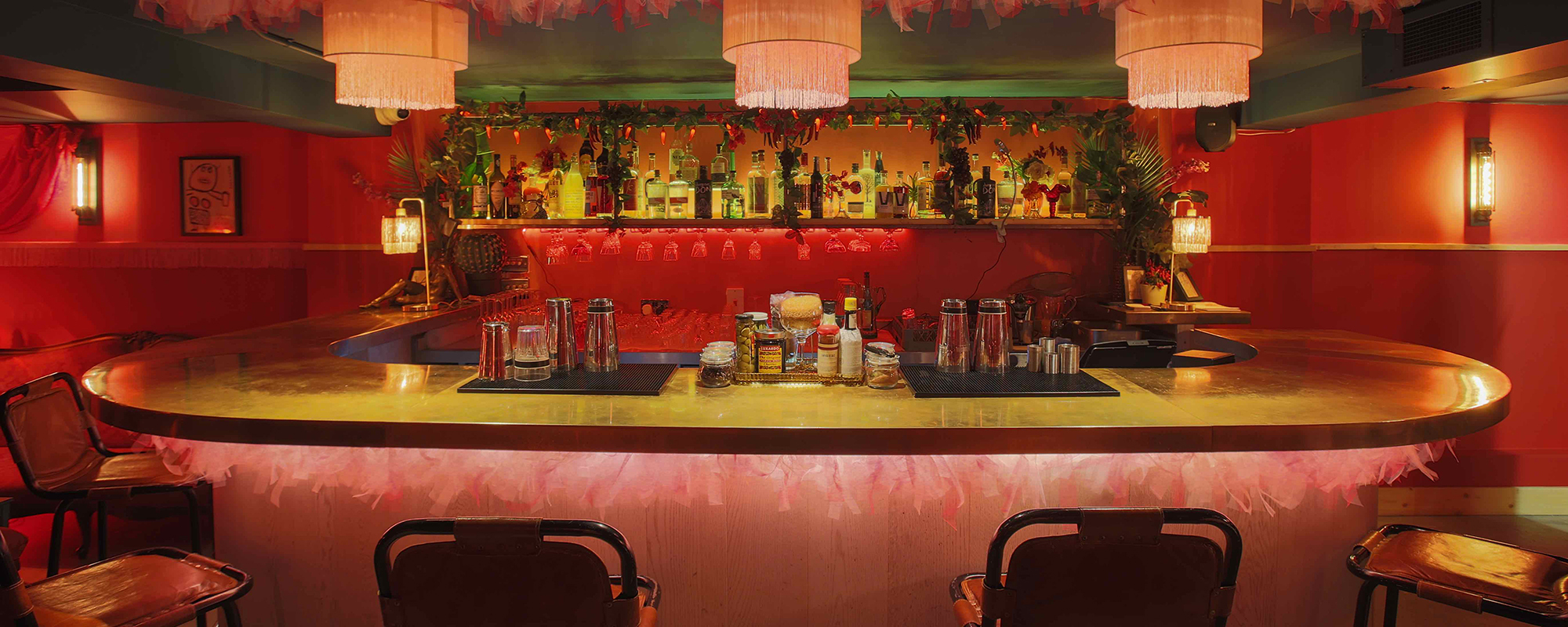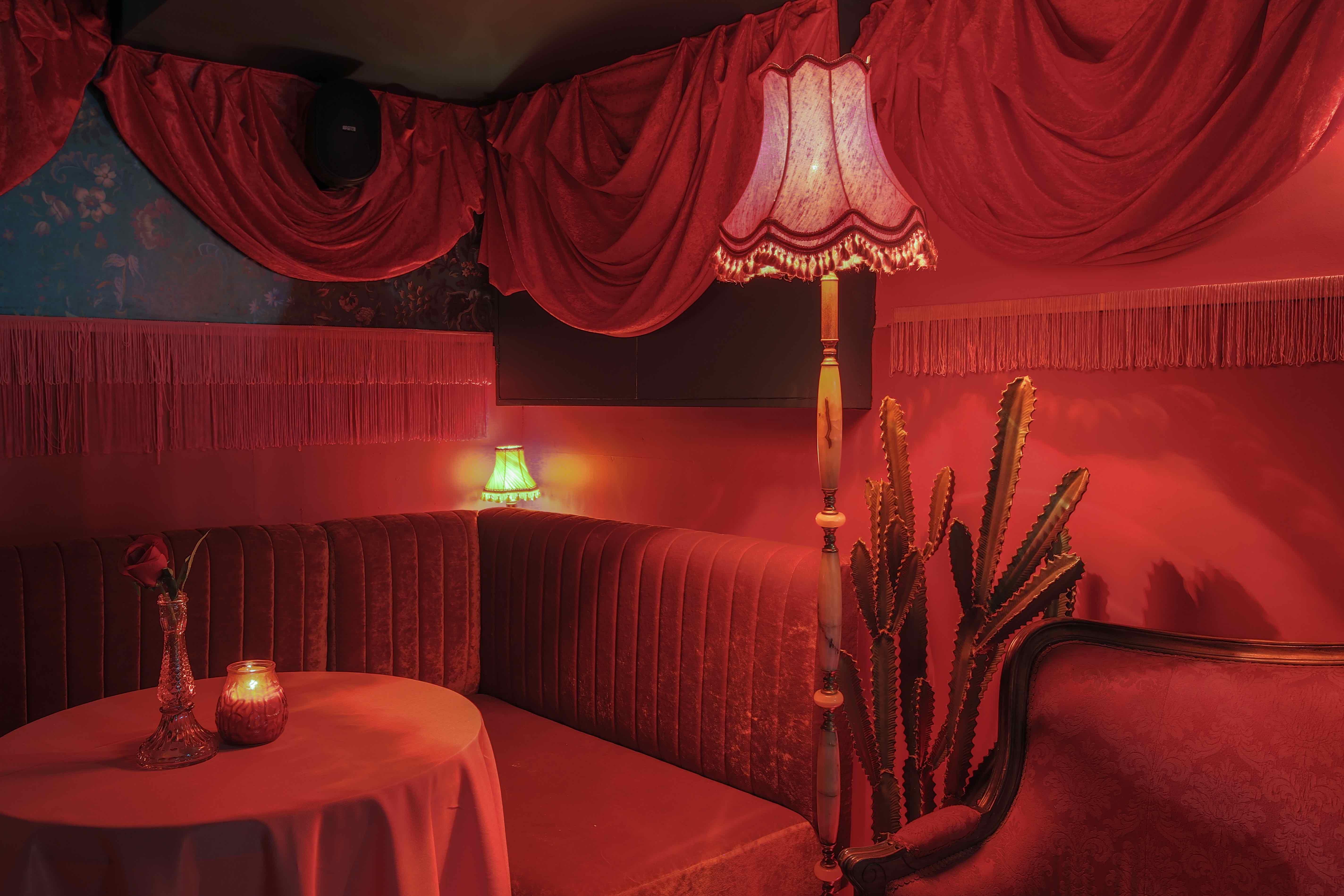Get updates from The Developer straight to your inbox Yes, please!
Night time knife-edge: “When the first lockdown lifted, we thought we had prevailed”
The endless quest for space as a creative entrepreneur has shown me just how unappreciated the night-time economy is, writes Lucia Massey

For the last seven years, I have been bringing people together over food, drink, theatre, film and music. I love what I do, but life as a creative entrepreneur has shown me just how unrecognised and unsupported the night-time economy is in the UK. Recent restrictions are the nail in the coffin for many small businesses and demonstrate the government’s patent disregard for this sector.
I grew up in London with an Italian-Jewish mother, so food has always been central to my home and culture of hospitality. It felt natural to branch into supper clubs, which back in 2013 were a nascent thing on the London scene. Buddying up with a pal, we held small dinners in a friend’s warehouse in East London, eventually scaling up and doing events in other venues: an abandoned industrial laundrette, a theatre in Hackney Wick, an event space in Homerton, a bar on Mare Street.
We were drawn into a cat-and-mouse chase to find affordable space, only to be turfed out just as the ball got rolling and people started paying attention. We were being used as a tool for developers to gentrify areas and buildings, pushed out at the first chance to rip down and redevelop.
“We were being used as a tool for developers to gentrify areas and buildings, pushed out at the first chance to rip down and redevelop”
First, there was the cafe space in an old biscuit factory in Bermondsey. We were supposed to be open for between six months and a year, but the building was prematurely closed just six weeks in. The developers weren’t actually going to start work for at least eight months, but they didn’t want the inconvenience of short-term lets. They kicked us out, alongside over 400 artists working in the space, with less than one month’s notice. An industrial laundrette was taken over by a guardian property company that installed a few fire doors and tripled the rent. A space we worked with on Mare Street closed because they could no longer afford to run the business.
We launched a pop-up space at the Vaults in Waterloo and began negotiations to take on a neighbouring tunnel in Leake Street, only to be priced out by the developers. The most traumatic loss was of a beautiful restaurant and art space on the day we were scheduled to open due to mismanaged paperwork by our business partners and a greedy and unsympathetic landlord.
“The developers weren’t going to start work for eight months, but kicked us and 400 artists out with less than one month’s notice”
We kept getting back up, dusting ourselves off and going after the next opportunity. Always chasing a little space, and some time to build something independently, without backers, without investment, without compromising on quality or the way we treated our team. We moved around the city, run ragged by the grinding wheel of rampant commercialism and a complete absence of support for grassroots businesses.
For those of us trying to do it from the ground up, you learn quickly that the system is rigged; if you don’t have the capital to pay an inflated premium, you don’t even stand the chance of getting a lease on a property. And if you do find the money [usually upwards of £30k] to get the lease, the running costs are so punitive that unless you have multiple sites, or you cheat in some way, you are really going to struggle. That is just the way it is for small hospitality businesses in the capital.
If finding space and making the economics work is challenging, there’s the measures taken by councils to curb late-night drinking and restrain the night-time economy. Kingsland Road, a busy high street in Hackney with 24-hour bus routes and plenty of bars, restaurants and clubs, once glorified as a hub for alternative nightlife, is now almost completely dead by 1am. Late licenses are rarely granted to new businesses, while 3am permits are like the Holy Grail, clung to by owners in older venues with the ensured flow of revellers with limited options.
To apply for an extension on your license costs hundreds of pounds and is unlikely to be granted, and if one single neighbour complains about the noise, your space runs the risk of losing its license entirely, even if situated in a business area such as a high street. Small operators live with a knife over their head, knowing that they will receive little to no support from the council that they pay business rates to.
But sometimes you get lucky. In October last year, we found a space: a small basement bar in Stoke Newington with sympathetic landlords who allowed a flexible rent part fixed and part based on a proportion of our take. We opened on Halloween as a two-month pop up, and quickly realised that this was something more permanent. Doña is the sum of all the failures and all the setbacks. It is a celebration of empowered feminine energy, and of independent creativity. It is a space of nurture, love and community. In all my time of running events in London, I have never, not once, worked at a venue run and owned by a woman. Doña is run by two.
It has not been easy. As owners of a new business, we’ve fallen through every crack in government support, the majority of which call for a year’s record of payments or rent in order to be deemed eligible. Without grants and the first furlough scheme, we survived thanks to a rent holiday granted by our landlords. After the first lockdown, we opened our doors for the first time in six months, having been closed for most of our short life. We thought we had prevailed.
The introduction of measures such as the 10pm curfew upended that. Announced with no forewarning or mention of extra support for our industry given we are already operating under incredibly tight restrictions was nothing short of destructive. We were left scrambling to adapt and change our way of doing business.
A small business’s customer base relies on a set of predictable opening hours and ways of doing things. The upheaval of transforming the programme of events with two days’ notice, is confusing for customers and exhausting for owners. Plus, there was no mention of financial help for businesses worst affected. Restaurants where capacity had already been drastically reduced faced losing their second sitting. Bars like Doña had their prime drinking hours, 10pm-midnight, slashed. But we still had costs, and personal debt.
“After the first lockdown, we opened our doors for the first time in six months, having been closed for most of our short life. We thought we had prevailed”
Ineligible for government support, we decided to be creative with our predicament and try to make some money over the summer. We opened an outdoor bar from a friend’s canal boat, serving Doña’s signature Mezcal Margaritas to customers looking to enjoy a sunny day in the park. We got in touch with the local council who raised no objections as long as we obtained Temporary Event Notices tethered to a personal license holder [someone who is authorised to sell alcohol on premises without an alcohol license]. Our TENS was granted and we opened HMS Vallejo on a sunny Friday, selling two different cocktails and soft drinks.
It was a success - the money we made in that weekend propped up the bar’s expenses for well over a month. But after just two days, we got a call from the Canal and River Trust saying we hadn’t obtained an additional license from them – an application that takes three months.
We were forced to close and lost out on six weekends of brilliant sunshine and business-saving sales. Bureaucratic regulations like these are stifling grassroots creatives like us. Who are these rules protecting? What purpose do they serve? People can buy alcohol in local shops and drink in the park. Why can’t a group of entrepreneurs provide a freshly-made and quality alternative?
“After two days, got a call from the Canal and River Trust saying we hadn’t obtained an additional license from them. Who are these rules protecting?”
We need emergency support, but we also need a critical look at why start-up businesses are squeezed out from so many different angles. Why are empty spaces so hard to operate out of? Why can’t more venues operate with later licenses? Why are business rates so high? And why are landlords still permitted to hold exorbitant premiums over locations on the high street, perpetuating a bubble of unaffordability that is strangling independents?
Rent holidays, rounds of grants, a lifting of VAT, flexibility with our way of adapting to these changes (within reason and with due accountability) should all be factored into the legislative changes that accompany restrictive rules and lockdowns.
Without such support, cities including London face a barrage of chalked-over windows and closed shopfronts, furthering the decimation of independent shops, bars and restaurants and the human ecosystem that exist around such businesses.
Lucia Massey runs Bar Doña in Stoke Newington, Hackney with Thea Cummings
Sign up to our newsletter
Get updates from The Developer straight to your inbox
Thanks to our organisation members
Become a member
© Festival of Place - Tweak Ltd., 124 City Road, London, EC1V 2NX. Tel: 020 3326 7238

